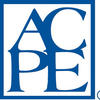Technical Standards
The curriculum, as established by the faculty, represents a core curriculum essential to all Pharmacists. Therefore, the Temple University School of Pharmacy expects that each student admitted will be capable of completing the full curriculum of required courses and electives under the established School policies. In the admission of students, all individuals are considered on the basis of total nonacademic and academic qualifications. This includes assessment of prior academic achievements, scores on standardized national examinations, and such personal qualifications as motivation and interest in pharmacy, resourcefulness, leadership problem solving ability, personality and character.
Applicants to the Temple University School of Pharmacy are considered without regard to disability but with the expectation that all parts of the curriculum can be completed with or without accommodations. The presence of a disability may impede that individual’s ability on one or more of these areas. In these cases, the School will consider necessary accommodations for an otherwise qualified individual. The School must be fully satisfied that the applicant can make satisfactory progress through the curriculum with or without these accommodations.
The various abilities and skills necessary to be a competent pharmacist include: observation; communication; motor function; intellectual –conceptual; integrative and quantitative; and behavioral and social. Technological compensation can be made for some disabilities in certain of these areas but a candidate should be able to perform in a reasonably independent manner.
When a letter of acceptance to Temple University School of Pharmacy is mailed, a detailed copy of the Technical Standards for the PharmD degree will be included. All students must confirm that they can meet all of the technical standards, with or without accommodation.
Any student requesting accommodation must contact the Disability Resources and Services department (215) 204-1280, drs@temple.edu, disabilityresources.temple.edu) and the Office of Student Services.
The candidate for successful completion of the Pharm D. Program must be able to perform the following skills:
1. Observation: The candidate must be able to understand and interpret instructional materials required during pharmacy education. A candidate must be able to observe a patient accurately at a distance and close at hand, gather data from written reference material and computer programs, and read and interpret prescription and medication labels and literature.
2. Communication: A candidate should be able to communicate with and to observe patients in order to elicit both verbal and nonverbal information, and must be able to communicate effectively and sensitively with and about patients. Communication therefore includes speech, reading and writing. The candidate must be able to communicate effectively and efficiently in oral and written form
with the patient, the patient’s family, and all members of the healthcare team, including referral sources such as agencies and other physicians or pharmacists.
3. Motor Function: Candidates must have sufficient motor ability to use the equipment necessary to prepare and compound various prescription orders including sterile products. They must have the motor skills which will allow him/her to do basic physical assessments (e.g. measuring blood pressure) and the handling of medication delivery devices including inhalers and syringes. A candidate should be able to execute motor movements reasonably required to provide general care and emergency treatment to patients. In addition they
must have the motor skills to teach medication administration, including the monitoring and counseling of patients regarding their medication. They must be able to use computer-based information systems. They must adhere to universal precaution measures and meet safety standards applicable to inpatient and outpatient settings and other clinical activities.
4. Intellectual Conceptual, Integrative and Quantitative Abilities: These
abilities include measurement, calculation, reasoning, analysis and synthesis. Problem solving, the critical skill demanded of pharmacists, requires all of these intellectual abilities. In addition, the candidate should be able to comprehend three-dimensional relationships and to understand the spatial relationships of structures.
5. Behavioral and Social Attributes: A candidate must demonstrate the
full utilization of his/her intellectual abilities, the exercise of good judgment, the prompt completion of all responsibilities attendant to the care of patients, and the development of mature, sensitive and effective relationships with patients. Candidates must be able to adapt to changing environments, to display flexibility and to learn to function in the face of uncertainties inherent in the clinical problems of many patients. Compassion, integrity, concern for others, interpersonal skills, interest, and motivation are all personal qualities that are
assessed during the admission and education process.
The faculty of Temple University School of Pharmacy recognizes its responsibility to present candidates for the Pharm D degree who have the knowledge, attitudes and skills to function in a broad variety of clinical situations and to render a broad spectrum of patient care.
Office of Disability Resources and Services
100 Ritter Annex1301
Cecil B. Moore Avenue
Phone: 215-204-1280


